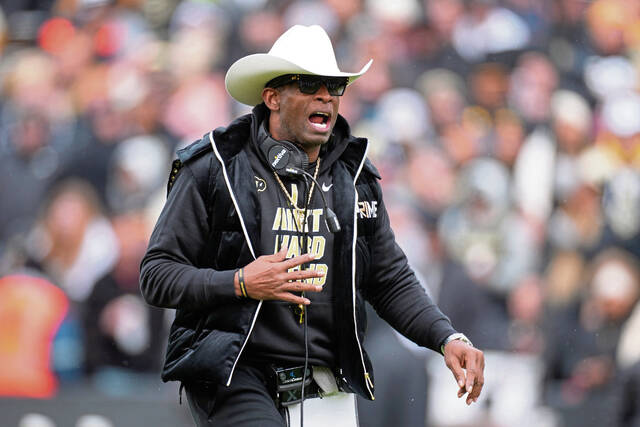Several years from now, we might wistfully be speaking about when college football was an amateur sport rather than a minor league for professional football. We might reminisce about when players chose to play for the love of the game and the pride of representing their school while obtaining a paid college education, rather than weighing which college might afford them the greatest opportunity in monetizing their image. We might look back to a time when coaches felt a responsibility not only to develop these young men as players, but also as individuals.
In a recent interview, the University of Pittsburgh’s head coach, Pat Narduzzi, expressed alarm about actions by the University of Colorado’s new head coach, Deion Sanders. Sanders has used a new NCAA rule allowing players to more easily transfer from one college to another, to transform the team in one year through using what’s known as the transfer portal.
“That’s not what the rule intended to be. It was not to overhaul your roster,” Narduzzi said.
When Sanders was hired, many envisioned him rebuilding CU’s football program. That is, working with the existing group of players and blending them with a few transfers, inspiring players to play their best and providing a game plan that allows them to be competitive. Narduzzi and other great coaches have then recruited quality players that fit better with their system and blended them with veterans, building programs that ensure success for the future.
CU players were enthusiastic about Sanders’ hiring, playing for someone who had not only been a superstar player but also one who had proven himself as a coach in turning around Jackson State. They saw Sanders as a beacon of hope after being on a team that had survived a painful and embarrassing 1-11 season. They saw themselves as being part of a foundation that would restore the football program to greatness.
Unfortunately for over 70 of those players leaving the program, there will be no fairytale ending. “Those kids have moms and dads and brothers and sisters and goals in life — I don’t know how many of those 70 that left really wanted to leave, or they were kicked in the butt to get out,” Narduzzi said.
Sanders stoked this impression in his initial meeting with CU’s existing players, when he told them that they should consider jumping into the transfer portal to play for another school because he was “bringing some Louis Vuitton luggage with him to Boulder.”
Sanders’ comments appeared particularly heartless considering that the existing players had endured several difficult losing seasons and also survived covid. Despite the tough times, those players remained at the school rather than transfer to another school that had greater prospects of winning. Many players looked to fulfill their commitment to the university and fellow players, and hopefully serve as the foundation for a turnaround of the program.
There appears to be little concern by the new coach for the welfare and future of existing players. Rather, he appears solely focused on immediately creating a winner, casting aside existing players and using the transfer portal to acquire better players.
These are young athletes, not professional football players. The players cast adrift don’t have agents to navigate trade options or, in this case, the transfer portal. Many weren’t thinking about leaving but based on the statements by the new staff, they had almost no option.
Little has been mentioned as to the value and importance of a player’s education. Some players leave school early without receiving their degrees in the hope of playing in the NFL. The reality is that less than 2% of college football players will go on and play professionally, and even those for a short period of time (average of 3.3 years). Thus, for many of these players, a college degree in the long run offers much greater value and a better chance for success in life.
We should expect more from our college coaches who recruit these young men. An important part of their job is being educators. Their role is much more than teaching players the Xs and Os of running plays. They should be instilling in these young men the values and skills that will help them in life after football.
Greg Fulton is a New Castle native living in Denver.








